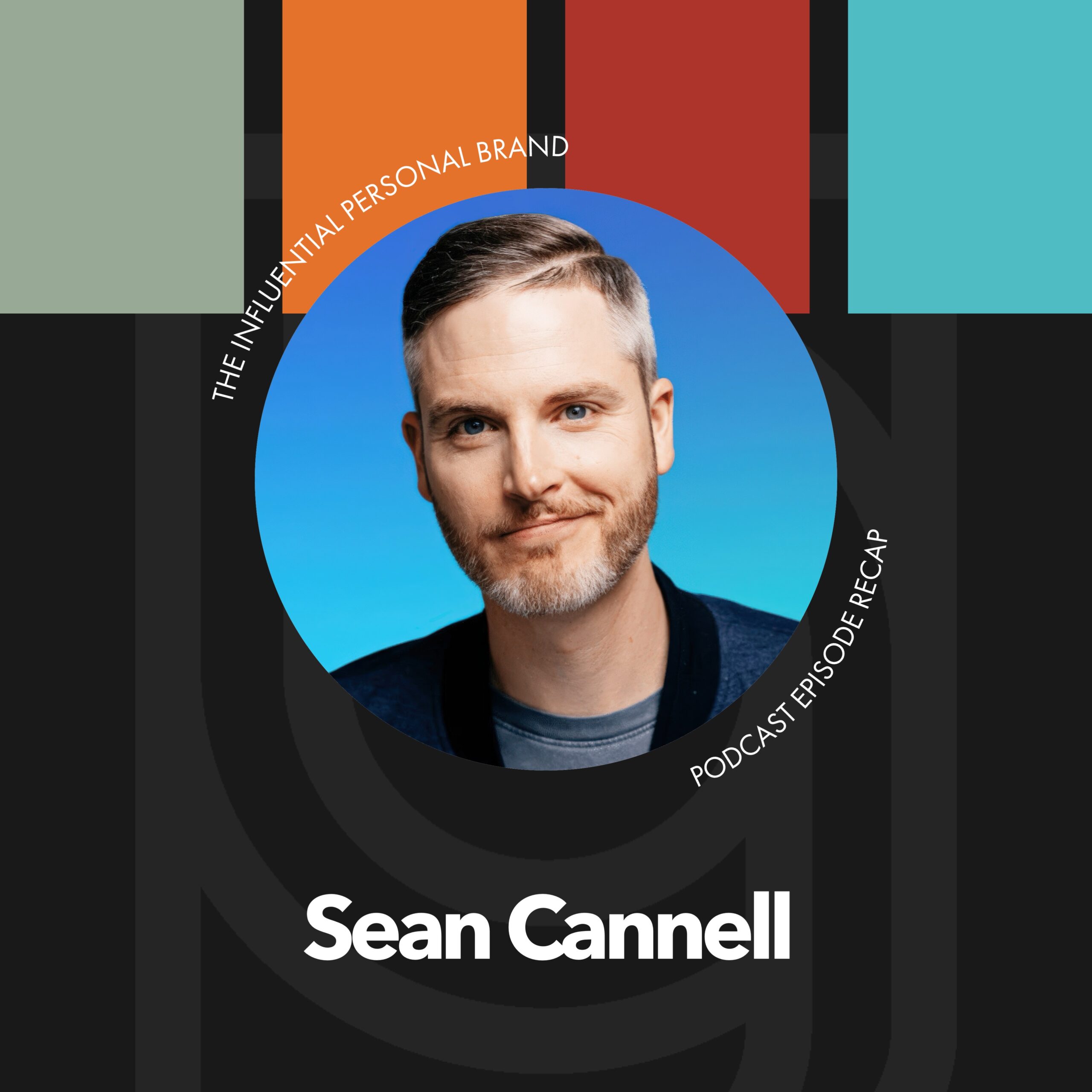RV (00:05):
Let’s talk about how to be more mentally tough. I’m gonna share with you three insights that I think are a requirement for anyone to understand. Who wants to be stronger mentally, right? And when I say mental toughness, what I’m talking about, I, I’m talking about the, the, the, the, the process of training your brain to think in a way that allows you to continue in the face of adversity. Everyone who has ever been successful has faced adversity. You’re going to face adversity again and again and again. Your ability to overcome adversity is completely connected and tied to your mental toughness. The way that your brain processes rejection, the way that your brain processes pain, failure, setbacks, tragedies, challenges, however your brain responds to those elements will determine whether or not you are successful in this life. It will determine whether or not you have or achieve, or gain or acquire the things that you desire.
RV (01:20):
Because , because excellence is never an accident, it always requires perseverance. It always requires you to endure hardship and overcome setbacks. So this skill of going, how do I build my mental endurance? Not just my physical endurance, but my emotional endurance, my willingness to continue on in the face of adversity is critical for you to achieve anything. And here’s three key insights. This was inspired some, some of this was inspired by my, my interview that I did with Dean Stad, who is incredible. He’s this former British Special Forces soldier. He’s a two-time world record setting cyclist. And I interviewed him on our podcast. And if you haven’t listened to that episode, like go back and check out the episode. He talks about like riding on a bicycle, like through continents. I mean, it was, it was, it was incredible. But what I wanna highlight for you are some of my ideas and some of the things that I’ve learned around building mental toughness.
RV (02:21):
Now, the first one I’m actually gonna take directly from Dean from this interview, ’cause I had never heard anybody say it this way. I’ve heard lots of people talk about this concept. So I know this is a truth because I’ve experienced it and I’ve heard lots of other successful people talk about it in, in our research, in our coaching, and working with people. But I’ve never heard anybody say it the way that Dean said it. And this is so powerful. He said, anticipation is always worse, almost always worse than participation. Anticipation is worse than participation. What is he
RV (02:58):
Saying there? He’s saying that whenever you are going to set out to conquer something meaningful, whenever you’re gonna set out to do something significant, whenever you’re chasing a new dream, going after a new goal, attempting a new endeavor, the anticipation is worse than the participation. Our minds make things up to be much more difficult than they really are. And by the way, if your brain does this, which I know it does, this doesn’t mean that you are someone who’s doomed for failure. When your brain does this, this is what the brain is supposed to do. Your brain is designed to keep you safe. So when your brain is doing this, it means that you have a perfectly normal, healthy, functioning human brain. Why? Because the brain is designed to keep you alive. Survival is the first and foremost function of the human brain. And the way that you keep somebody alive is by keeping them safe, which means doing things that are comfortable, which means preventing you from doing things that are new and unfamiliar and un uncomfortable and uncertain.
RV (04:14):
So the brain holds you towards certainty, safety and repeated behavior where you already know the outcomes. And so fear is the tactic that your brain uses to keep you safe, right? That’s why my favorite definition of fear is the old acronym FEAR for fear, false evidence appearing real. So what does your brain do? Your brain by design biologically goes into mental mushrooming. It goes into forecasting the worst possible scenario. That’s what the brain, it’s doing what it’s supposed to do. It is forecasting all the negative things that could happen might happen. What if you know, like, what if there’s things you don’t know? What if you fail? What if you go broke? What if you die? And that’s the brain’s mechanism for keeping you from pursuing new things which are risky and keeping you doing the things you’ve always done, which is safe, which keeps you alive.
RV (05:15):
However, if you’re gonna be a successful person, you gotta overcome that. If you’re going to do something that nobody else has done, you’ve got to think in a way that nobody else thinks. If you’re going to achieve things that you’ve never had, you have to do things you’ve never done. You have to become a different person than you are. You have to set out on a trail that you’ve never been down before. And so it doesn’t mean that your, your brain is somehow faulty when fear shows up, but it also doesn’t mean that that’s the truth about what’s gonna happen. In fact, it’s almost never the truth. And what Dean is saying is the anticipation is worse than the participation. It’s thinking about it and thinking about how hard it could be and how hard it might be. Much more that is much more difficult than the actual doing the things.
RV (06:09):
And so you have to just know that in order for you to be mentally tough, you have to know a little bit about neuroscience. You have to know a little bit about psychology. You have to know a little bit about how your brain works so that you can go, ah, . Okay, I am aware this is what’s happening. Yes, thank you brain for doing your job. You know, you’re trying to keep me safe and I acknowledge that, but, but the likelihood of these things all turning out to be, you know, leading towards inevitable death is probably not true. And so, I’m gonna take my chances and I’m gonna step forward in faith. I’m gonna step forward into uncertainty. I’m gonna take risk. I’m gonna, I’m gonna move towards something, even though I’ve never done it before. I’m going to move in that direction and explore it for myself. Part of what this means, and part of why this is powerful, it is you making a resolution. You making a decision that you are not going to lose to stories that you’ve made up in your own mind about why you can’t be successful.
RV (07:06):
People who are mentally tough have resolved to say, if I’m gonna fail, I’m gonna fail to something that’s real. If I’m gonna endure setbacks, I’m gonna endure setbacks to things that really showed up. What I am not okay with is I am not gonna allow myself to never achieve and to never even attempt or pursue because I am going to enable myself to be a victim of a figment of my imagination. I am not gonna lose to what is fake. I am not gonna lose to what is made up. I am not gonna lose to what is not real. You have to make that resolution. You have to decide that if you’re gonna lose, you’re gonna lose to a real opponent. You’re not gonna lose because you were too afraid to step onto the field. And 95% of people, probably 99% of people can’t get past that one hurdle.
RV (07:59):
You get past that one hurdle, you’re on your way because you realize that anticipation is often worse than participation. The second insight that you need to know to build your mental toughness is that you have to build a great plan and put your confidence in the plan, and then simply execute the plan, right? So what you don’t wanna do is be dependent on you having courage in every given any given moment, on any given day, in any given circumstance. What you don’t wanna do is be completely reliant on your gut instinct all the time. What you don’t wanna do is say, woo, you know, I’ll just fly by the seat of my pants and hope I figure this out. What you don’t wanna do is just run blindly into a fire. Like you want to have a plan, and you want that plan to be based on reality, data, experience, logic, rationale, other people’s experience, interviews, coaching, education.
RV (09:08):
You want to create a plan based on pragmatic logic. And what you do, and this is what all like peak performers do, right, is they create a plan and then they focus on executing the plan. Every professional athlete, professional coach, this is what they do. They create the plan. This is what the military does in life and death situations. What do they do? They create the plan. Do they sometimes have to deviate from the plan? Sure, they do, but they have a plan and they work the plan. They put time into creating the plan, and then they execute the plan, right? That’s what a budget does. A good entrepreneur creates a budget. Why? What is a budget? It’s a plan. It’s to go, look, if we have these financial goals, these are the things that need to happen. These are the inputs that need to happen to drive the revenue to this number.
RV (09:57):
And out of the revenue that comes in, we will plan to spend this amount on each of these things, and we will reinvest this amount to, to grow the revenue again. And then we’ll plan to spend X percentage of, of the revenue on each of these line items. It’s a plan. You create a plan and then you execute the plan. Now, greatness sometimes requires that you deviate from the plan, but you have to have a plan first. And you, you put, you put your self-esteem. This is something that I said and take the stairs all the way back in 2012. You put your self-esteem, you put your in your work habits, not into your production. You put your energy, you put your focus, you put your faith, you put your conviction. You, you, you, you put your discipline, you, you put, you put your, your, your faith into your work habits, into the things you control into the plan, executing the plan that you’ve laid out, doing the things that are pragmatic and functional and actionable, not in the results.
RV (10:54):
Because there’s things that show up that you can’t control. And you can’t always control the, you can’t always control the result. You can’t only, I can’t always control the circumstances, but you can control whether or not you set a plan and then you just work the plan. And part of how you overcome your fear of failure, part of how you overcome the fear of failing is, is to say, if I fail at something, my self-worth and my identity is not gonna be wrapped up in the fact that I failed at something. ’cause It wasn’t that I failed, it was that my plan failed. It’s not Rory as a person failed. It’s, I took the time to create a plan. I thought the plan was gonna deliver an outcome. I thought the plan was gonna deliver a result, and then my plan failed to deliver that result.
RV (11:44):
I didn’t fail. The plan failed. I only fail if I didn’t execute the plan. But that, or if I don’t have a plan, but I create a plan and then I execute the plan. Sometimes the plan works, sometimes the plan doesn’t. But if the plan didn’t work, you go, oh, I need to modify my plan. That’s it. It’s not, I’m a failure. I’m horrible. I’ll never be successful. I’m not spiraling down into some sort of de depression, and I’m not, my, my, my confidence, my self-confidence isn’t affected by the fact that I fail. See, people who are not mentally tough have fluctuating confidence when things are going well. They have confidence when things aren’t going well, they don’t have confidence. But people who are mentally tough constantly have confidence even when they’re failing. Why? Because their confidence isn’t based on the outcome. Their confidence isn’t based on result.
RV (12:37):
Their confident is based on their work habits. Their confidence is based on the plan. Their confidence is based on their effort, their discipline, their energy, their confidence comes from controlling what they can control. And if they’re controlling what they can control and they’re failing, there’s nothing to be upset about because you can’t control whether or not you succeed or fail. You can only control what you could control. So if you stay focused on that, you go, I don’t have confidence that fluctuates. Even when I fail, it wasn’t that I failed, it’s that my plan failed. I need, I needed a better plan. The plan was the issue, not me. Now, if I failed to execute the plan, that’s more of something that I have to face accountability for, and I have to take self accountability for, or I have to have accountability with a boss or a, you know, spouse or coworkers or colleagues or partners to say, yeah, we created this plan. I didn’t execute my part of the plan. I gotta own that. That is a, that’s a, that’s a, that’s a personal failure, right? That’s a character failure. That’s a, my me not executing. But that’s why you create the plan, put your confidence in the plan, and then you work the plan and you put your self-esteem and your self-confidence and your self-worth in your work habits, not in your results, not in your outcomes. Mentally tough people do that. Number three. Number three, this is big secret, big secret of successful people.
RV (14:01):
It’s not that you have to be willing to do whatever it takes to be successful. You just have to be willing to do the right things for however long it takes, right? A lot of people talk about doing whatever it takes. Eh, I don’t know about that, right? If it requires me to kill someone, if it requires me to steal, if it requires me to, you know, compromise my own personal health ever, if it requires me to like, turn my back on my family or not be available, right? It’s like, nah, I don’t know. What, what, what I will do though is I will say, if I want something bad enough, I will do the right activities for as long as it takes. Sometimes it takes a month, sometimes it takes a year, sometimes it takes a decade. But if I really, really want it and I still want it, I will continue on course until the mission is complete.
RV (14:58):
You know, I love the, the old sort of tongue in cheek saying that says, I’ve never lost. I’ve only been behind when the, when the clock ran out. , I love that. And it’s kind of tongue in cheek, but I actually think that that is really accurate truth and an accurate reflection of the world’s greatest entrepreneurs and the people who are the wealthiest people is they’re going, look, failure only happens if there’s a deadline that you didn’t meet it by. But I can always change the deadline. I can always move the goalpost on the deadline and go, oh, yeah, well, I, you know, I wanted to be a millionaire by the time I was 30, but I, you know, I’m not so well, I’ll, I’ll shoot for 35 now and then, but it’s like, I’m gonna become a millionaire. Maybe I’ll be 40, maybe it’ll be 45, maybe 50, 55.
RV (15:44):
But here’s the thing, if you stay focused on that goal, I promise, like if you stay focused on the goal and you really focus on it, you will get the goal. Don’t be discouraged by the deadline. That’s a big part of the point here is don’t be discouraged if you don’t meet the deadline. I think deadlines are important. Deadlines drive stress. That’s what deadlines do. They create stress. Some amount of stress is healthy. A deadline goes, man, we are gonna prioritize this to be completed by this date. And part of that stress creates, you know, it moves you from the inertia of standing still, and it gets you moving and you go, Hey, you better start moving because there’s a deadline. That to me, is healthy. The unhealthy part of deadlines is to go, man, I’m doing everything I freaking can. I’m working the, the most I possibly can.
RV (16:33):
I’m doing everything I know how to do. I’m laying it on the line. I’m, I’m, I’m, I’m, I’m doing the best I can do, and I’m just not gonna get there by the deadline. Well, if that’s the case, you shouldn’t be stressed and you shouldn’t be beaten up. You certainly shouldn’t be beating yourself up. You shouldn’t have let that affect your self-confidence. You shouldn’t have let that affect your self-worth. You shouldn’t have let that affect your self-esteem. You can’t control those things. If you go, man, I am control. I’m working as fast as I can, and I haven’t been able to get there by this deadline, that’s okay.
RV (17:05):
The question is, are you doing everything you can do? Are you doing the best that you can do? And are you willing to do it? If it’s a goal that really matters to you, are you willing to do it? Are you willing to pursue it for however long it takes? Right? And you go, I always thought this, this is gonna sound arrogant, this is gonna sound arrogant. I don’t mean for it to sound arrogant. This is just the straight up truth. The first time I went to the National Speakers Association meeting, I think I was 22 years old, and they were you know, they do this awards banquet every year where they induct up to, I think it’s up to five, maybe six. They up the induct up to five or six people every year into the professional speaking hall of fame. And I’m telling you, I was 22 years old, and I decided, I sat there, right there, and I was like, I’m gonna be a, I’m gonna be the Hall of Fame speaker one day I will be inducted into the professional speaking hall of fame.
RV (18:00):
I made that decision at 22, and it didn’t feel like a big gamble at 22 because a lot of the people who were getting inducted were in their fifties and sixties, and they didn’t start speaking until they were in their forties. And I was like, well, gosh, if I’m, if I’m half as good as these people and I do it, you know, like for twice as long I’m gonna get there. That’s kind of what I’m talking about. Now, what I didn’t say is I didn’t have the pressure to go, I’m gonna be inducted into the Hall of Fame, the Hall of Fame in five years, or 10 years or 20 years. It was just like, no, this, I’m gonna do this. This is gonna, one day, I’m, this is gonna be me. And I was inducted into the professional speaking hall of fame when I was 37.
RV (18:35):
So was that a success or a failure? Well, on the one hand, you could say that was pretty successful. I’m the youngest American in history to be inducted into the professional speaking Hall of Fame. 37 years old. That’s pretty, that’s pretty amazing. But on the other hand, you go, it took me 15 years. Like, that’s not any faster than it took anybody else. Like, that’s not some child protege. That just means, I started earlier, like straight up somebody who gets inducted in their late fifties if they started speaking in their forties, like I didn’t do it any faster than them. I just did it earlier, right? I did it sooner in my lifespan, but like, I didn’t get there any faster than anybody else, even though I was the youngest person in history. So that’s what I’m talking about is I’m saying like, if you want something, if there’s something that you want bad enough and you go, I’m gonna freaking get this.
RV (19:33):
I’ll tell you, one of mine right now is I’m gonna get a house in 30 a, there’s an area in Florida that I love. It’s just, it is the perfect, to me, it has everything that I dream of when I think of relaxation and God’s creation and what family life should look like and what a community should be like, and assuming that that community doesn’t change sooner or later, we’re going to be there, right? Like, we’re gonna have a place in this one particular area. Why? Because I’m committed to it. I don’t know how long it’s gonna take. It might take the rest of my life, like, or I’ll die trying, but like, it’s gonna happen and there’s a good chance it’ll happen sooner than that, which would be great if it does. But if it doesn’t, like this is gonna happen. Now, my goal might change at some point, and you know, that that area might become run down or whatever, and I go, oh, I wanna do a different area. But like, the point is, you have to be willing to say, I will do this for however long it takes.
RV (20:37):
And I think people go, I’m a failure. Like I launched a podcast and I didn’t get a million downloads. I, I started posting on Instagram and I don’t have a million followers. I wrote a book and I didn’t sell a million copies. Like I wanted to be a speaker, and I haven’t been on a thousand stages. And you go, well, you failed. By whose timeline? Like, is the clock? Did the clock run out? Like, who’s the person that said the time has expired? You only, you extend your horizon, extend the timeline, be willing to do it for however long it takes to get there. You say, I’ll do it. That person is mentally tough because that person isn’t looking for the shortcut and that person can’t be beat. You go, you go, even if I go slow, I’m not stopping. Even if I take one step, I’m going forward.
RV (21:24):
Even if I fail, I’m failing forward. You, I cannot be stopped from achieving this goal when I decide I will pursue it for however long it takes. And that’s tremendously freeing and it’s tremendously confidence boosting to go like, oh yeah, I’m 22 years old. Like, yeah, I’m a hall of fame speaker. I, I mean, I may not be today, but one day I will be, but like, I already, I already know I will be, I just don’t know when. And then when it happened, it was like, yeah, awesome. I was so excited about it. But it, like, it wasn’t a surprise. It was like, of course. Yeah. I mean, I, you know, I’m so grateful. I’m so happy. I’m happy it happened when it did. I’m kind of bummed it didn’t happen earlier, but I knew it was gonna happen eventually. And it happened, it happened sooner than later.
RV (22:05):
So I’m happy about that. This is like, this is something that I’m gonna do. And then you get to live your life as operating. Like, yeah, this is gonna be me. I’m, I’m gonna, I’m gonna become a top salesperson. I’m gonna, I’m gonna become a great spouse. I, I’m gonna, you know, I’m gonna gonna be a great, I’m gonna, I’m gonna be a great CEO. I’m gonna, I’m gonna become a great author. Like, maybe not tomorrow, maybe not next year, maybe not the year after. But like, if something matters to you and you go, yeah, I wanna change the world. I wanna, I wanna, I wanna start a podcast that changes the world. Can you do that in a year? Me? That might be difficult that you do it in three years, still pretty hard. Can you do it in five years? My guess is if you podcast for five years, even with as many millions of podcasts are out there, I bet five years from now, you start today, you’ll have one of them, you’ll have a very significant podcast that will make a difference in the world.
RV (22:52):
You do it for 10 years. I can virtually guarantee it. Why? Because most people die and they give out, like all you have to do is outlast most people, like straight up. The strategy for success in many ways is you just gotta outlast most people. And it’s the tortoise in the hare, right? This is the old story of the tortoise in the hare. And you’re just like, I’m just gonna keep trucking along. I’m not worried about speed, like whatever. I’ll get there when I get there. So this is what mental toughness looks like. You go, you can’t mess with that person. You can’t stop them because they, they, they’re un mess with a bull because it’s like, I’ve already given up on pressuring myself to do something by a certain time. I just know I’m gonna get there. So it’s like, you can’t stop me. You, you, you can’t, you can’t distract me. I’m on target and I’m committed to be like however long it takes and I’m going, you know, I’m already taking action because I know anticipation
RV (23:45):
Is worse than participation. And my identity is not gonna be thrown astray. I’m not gonna feel sorry for myself or beat up myself or be too arrogant, egotistical if I do achieve it or if I don’t. ’cause My self-esteem is in my work habits. My self-esteem is in the plan, right? If I get success, that means the plan worked. If I don’t get success, that means the plan didn’t work. I gotta modify the plan. But it’s not about me as a person. It’s about the plan and it’s about my habits. And I will show up and do what I said I’m going to do. You do these three things, you’ll be unstoppable, literally unstoppable. You will be mentally tough, and I promise you do these three things. You will be different than 99% of people. So just outlast everyone. Build these into your psyche, decide however long it’s gonna take. Put your self-esteem into your work habits, work to plan, and it will come true for you. I promise.














